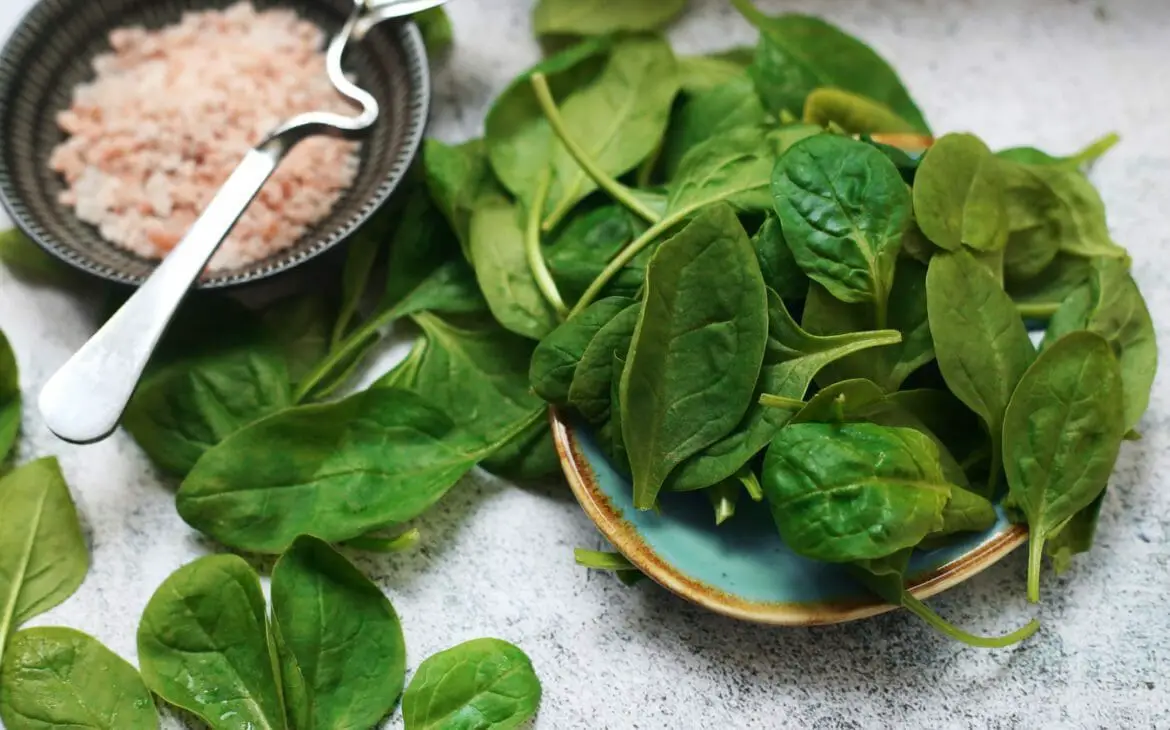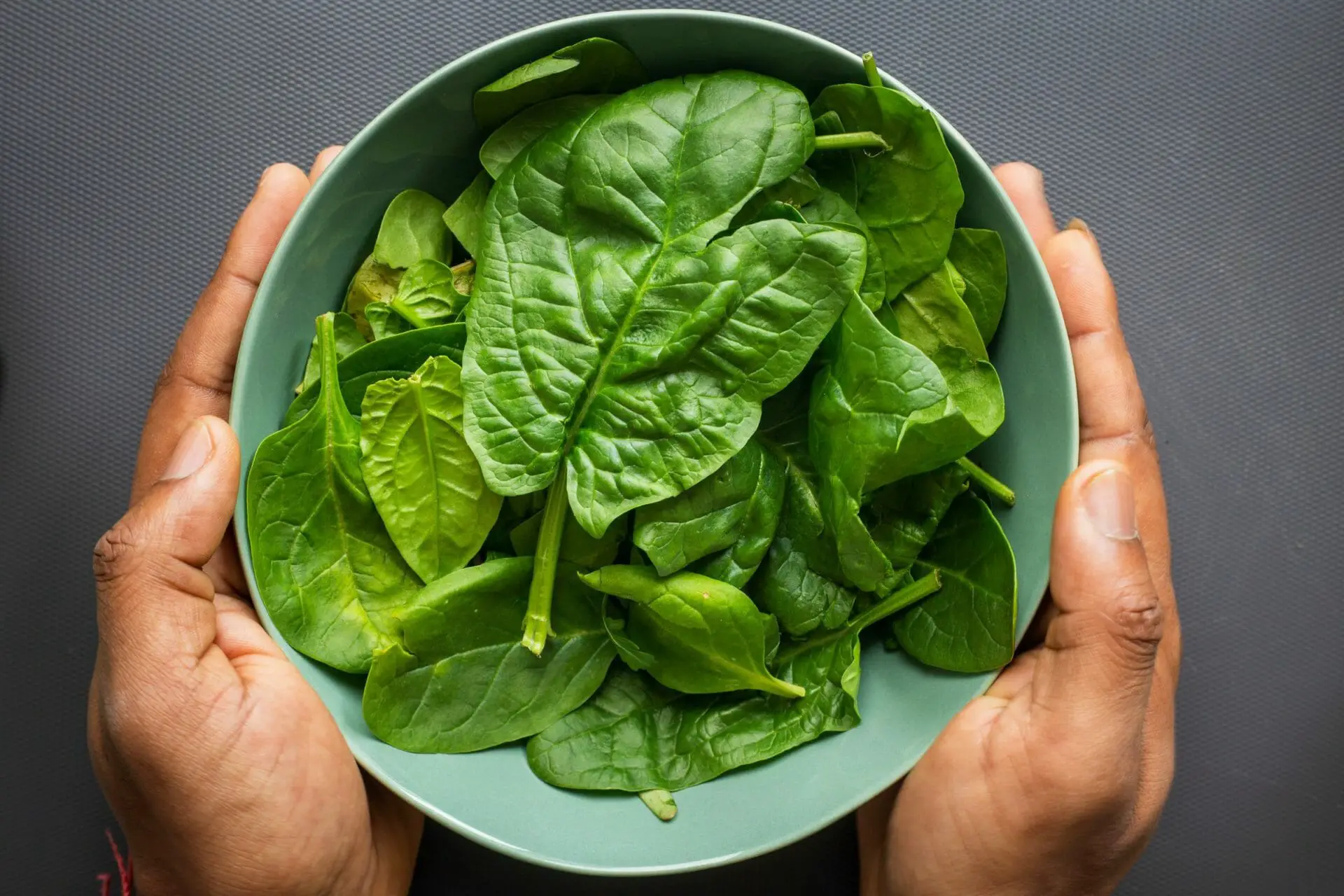Is spinach good for you? This is a question that many people have asked, and the answer is not always clear. Some people say that this green leaf is packed with nutrients and antioxidants, making it a great choice for a healthy diet. Others claim that the high levels of nitrates found in it can be harmful to your health. So what’s the truth? In this blog post, we will take a look at the evidence and find out whether spinach is good for you or not!

The first thing to consider is the nutrient content of spinach. This green wonder of mother nature is a good source of vitamins A, C, and K, as well as magnesium, iron, and manganese. It also contains high levels of antioxidants, which are believed to protect cells from damage and may help to prevent chronic diseases such as cancer. However, it is worth noting that the nutrient content of the “power flower” can vary depending on how it is cooked. For example, boiling spinach can reduce the level of vitamin C by up to 50%.

What you will learn
Vitamin A
Spinach has high levels of vitamin A, which is important for vision, the immune system, and cell growth. Vitamin A can also help to protect against some types of cancer.

Vitamin C
As well as being a good source of vitamin A, spinach is also rich in vitamin C. This vitamin is important for the health of skin, bones, and blood vessels. It is also an antioxidant, which means it can help to protect cells from damage.
Dr. Jin W. Sung provides a video on the benefits of Vitamin K
Vitamin K
Spinach is a good source of vitamin K, which is important for bone health and blood clotting. Vitamin K can also help to reduce the risk of some types of cancer.
Do You Have a Manganese Deficiency? – Dr.Berg. He goes into some detail into Manganese. Definitely worth a watching. It is a pretty short video.
Manganese
This green leaf contains high levels of manganese, which is important for bone health, wound healing, and metabolism.
Iron
Spinach is a good source of iron, which is important for the transport of oxygen around the body and for cell growth.
Magnesium
This leaf is also rich in magnesium, which is important for energy production, muscle function, and blood pressure control.
Potassium
Spinach contains high levels of potassium, which is important for heart health and blood pressure control.
Protects Cells

A number of studies have shown that eating spinach can help to protect against cancer. For example, a study conducted in China found that people who ate more than three servings of spinach per week had a lower risk of stomach cancer. Another study found that women who ate spinach regularly had a lower risk of breast cancer.
Reduces Inflammation
Inflammation is a process that occurs when the body’s immune system responds to infection or injury. Chronic inflammation can lead to a number of health problems, such as heart disease, arthritis, and diabetes. Some studies have shown that eating spinach can help to reduce inflammation in the body. For example, one study found that people who ate three servings of spinach per day had lower levels of inflammation-related proteins in their blood.
So, there is plenty of evidence to suggest that spinach is good for you! Let’s look at the negative side of the argument.
The main concern with spinach is the high level of nitrates it contains. Nitrates are converted into nitrites in the body, and nitrites can be harmful to health. For example, they have been linked to an increased risk of cancer. They can also interact with certain medications, such as blood pressure drugs and Viagra.
Nitrates are a type of chemical compound that occurs naturally in many vegetables. In small amounts, nitrates are not harmful to human health. In fact, they are actually essential for the proper functioning of the body. However, high levels of nitrates can be toxic and may cause health problems such as headaches, dizziness, and nausea.
Pros and cons of Spinach by Dr. Berg
What are the nitrate levels in spinach?
The level of nitrates can vary depending on where it is grown and how it is stored. For example, spinach that has been grown in nitrogen-rich soil or that has been stored for a long time may have higher levels of nitrates.
Is cooked spinach healthier?

Cooking spinach can reduce the level of some nutrients, such as vitamin C. However, it can also increase the level of other nutrients, such as beta-carotene. Beta-carotene is an antioxidant that can help to protect cells from damage.
Can you reduce nitrates in spinach when cooking?
Yes, you can reduce the level of nitrates by cooking it in water. This will help to leach out some of the nitrates. You can also add vinegar to the water, as this will help to further reduce the level of nitrates.
So, there are some potential risks associated with eating spinach. However, these risks are generally only a concern if you eat large amounts or if you have certain health conditions. Overall, it is a healthy food that can provide many nutrients and health benefits. If you’re concerned about the nitrate content, then cooking it in water can help to reduce this.
Here is a great recipe Sautéed Spinach Recipes | How To Make Garlic Butter Spinach – Tracie’s Place
Final Answer: Is Spinach Good for you?
Overall, it seems that the pros far outweigh the cons when it comes to eating this healthy leaf.
So, overall, it seems that spinach is good for you! It is a good source of vitamins and minerals, and it also contains high levels of antioxidants. We believe everything in moderation is fine, but if you are concerned about the nitrate levels, then it might be best to cook it before eating.
Looking for alternatives, head over to this post and give it a read – https://myconsciouseating.com/spinach-substitute/

